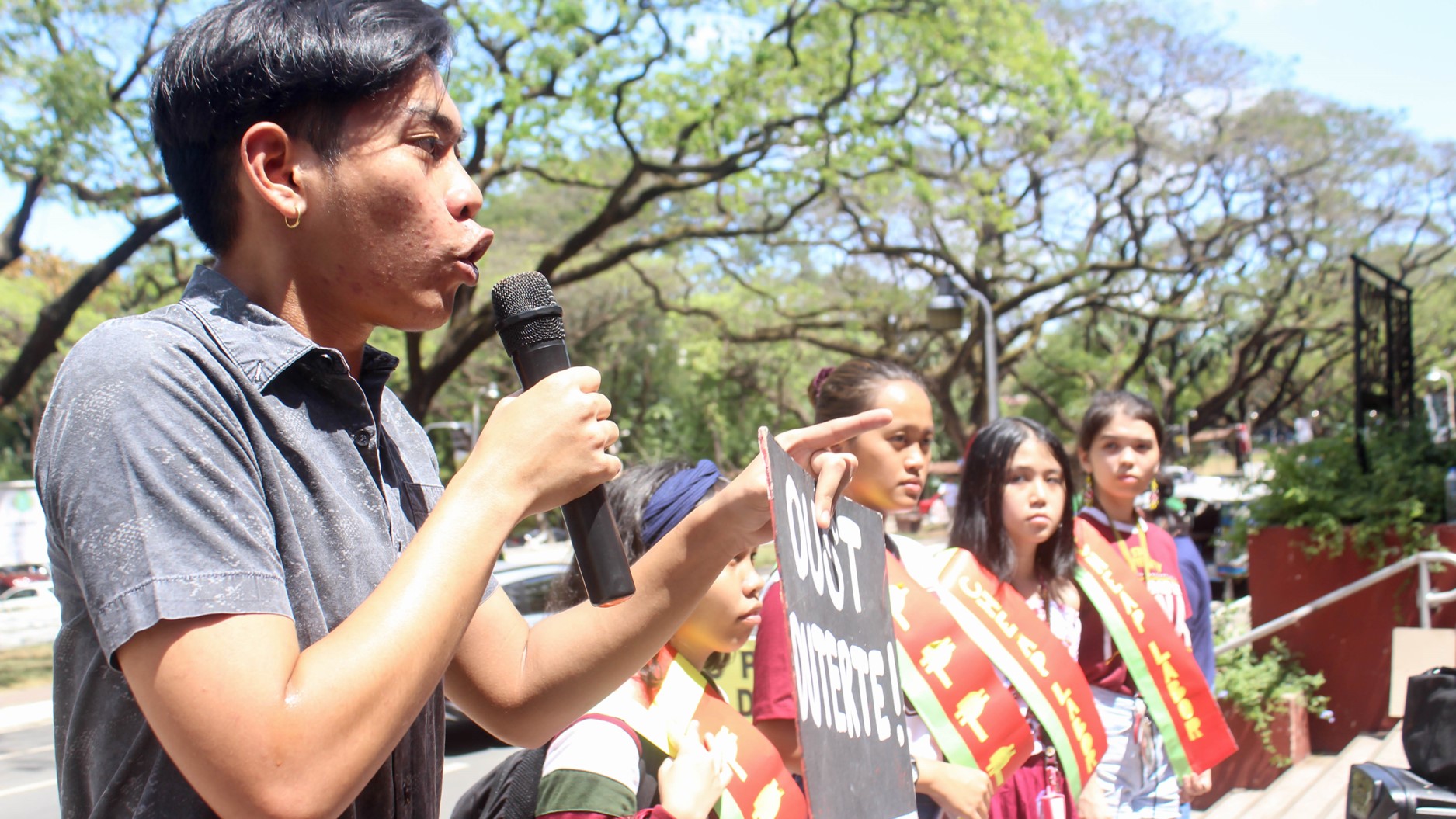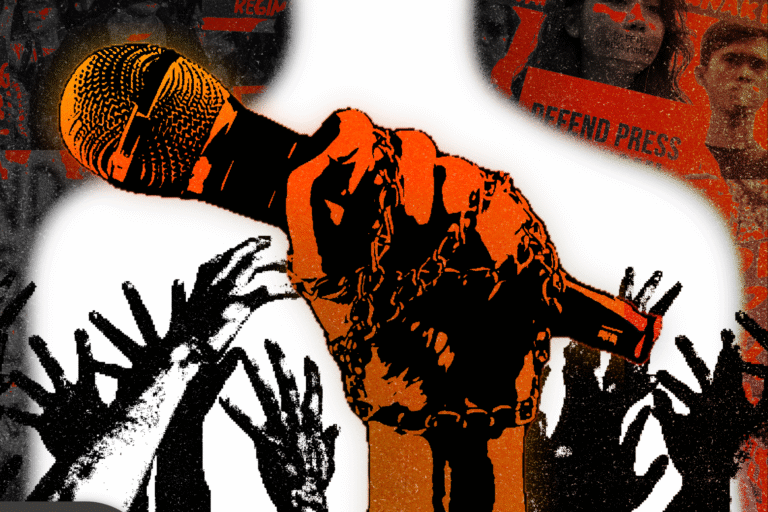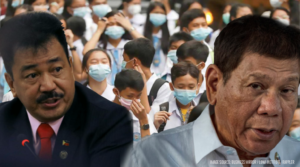
When classes were first suspended because of the threat of COVID-19, many did not think that it was the start of the longest pandemic-induced lockdown in the world. In the University of the Philippines, many students were yet to take their midterm exams before being forced to leave the campus.
More than a year later, they are still yearning to go back.
The pandemic worsened existing problems plaguing the Philippine education system and brought about even more headaches. Even before the “new normal,” the country’s public schools were already struggling with inadequate funding, facilities, textbooks, and manpower, among other deficiencies. To hear stories of students and teachers having to traverse difficult terrain to study and teach were also not unusual.
As a result, the quality of education given to Filipino students has negatively affected their learning and acquisition of necessary competencies. The Philippines is notorious for faring poorly on national and international student assessments that measure performance in select subject areas.
In response, the K-12 program promised more employment opportunities for students. The idea was that they would already be competitive and “job-ready” upon graduation from Senior High School. However, many employers were not inclined to hire applicants without a college diploma, especially those K-12 graduates whom they perceive as hilaw pa.
What K-12 did do is provide additional burden to the finances of Filipino families and additional obstacles to student-breadwinners who are itching to graduate to help their loved ones. The program widened the gap between the haves and have-nots. Those at the top leadership see not its setbacks but the need to comply to Western market-based international standards of education.
It is an indisputable fact that the K-12 program is a neoliberal state policy aimed at increasing the rate of labor-export of skilled, cheap, and docile workers. Education has always been tied to the economic interest; lest we forget that it must be redefined to cater the needs of the people—the nation we are building.
Earning a college diploma was already a treacherous climb; K-12 made the mountain even steeper while transforming schools and universities into ‘diploma mills’ and subjecting them to the invisible hand of the free market, rather than intellect.
Come pandemic, we still had a failing education system which had to contend with novel and difficult challenges. The abrupt shift to a remote learning setup had students, teachers, and parents scrambling to make the necessary adjustments. However, the crippling economic recession that ensued, a bungled pandemic response, and a government that just won’t quit persecuting its people hampered their best efforts.
Because of the lack of resources, enrolment and retention rates were down across the board. Complaints of exhaustion from remote learning have dominated social media as the mental and physical health of many students and teachers further deteriorated.
Clearly, we should never expect much from an education system that fundamentally views students as products for export. Placing high on world rankings does not really mean much if the concerns of students, teachers, and staff – who form the backbone of the education system – are belittled, ignored, or worse, suffering.
We understand that addressing the education system’s woes will not be accomplished in a day. We can always start small. For instance, CHED Chairperson Prospero de Vera should stop forwarding the narrative that there is “no going back” from the “new normal.”
Maybe the Duterte administration can stop funding harmful and wasteful initiatives such as the NTF-ELCAC and the quickly-disappearing dolomite beach in Manila Bay. Congress could have funded the much-needed cash aid and helped students and teachers with the remote learning setup in the short run, and ensured a safe return to schools in the long run.
In a time wherein government officials are so eager to ask “Anong ambag mo?”, we think it best to issue this reminder: You are the ones in power. Stop passing the burden of policy-making to the students, teachers, and people you serve.
Meanwhile, at the university level, it is imperative to choose student-leaders who are uncompromising in the campaigns of the student and mass movements. Political parties who continue to support K-12, on the basis of reforming it, should be subject to the scrutiny of the student body they seek to lead: especially now that three batches of K-12 graduates are now enrolled in UP. The stand on the K-12 is a litmus test to their militancy and practice.
With a criminally negligent and incompetent regime, we are not asking for a golden goose; what we want are sensible and pro-people policies. Our demand is simple: Do your jobs, and do it well. If you can’t and you won’t, then step down or the people will oust you.
Our student-leaders who will be elected in this student council election cycle should be the ones to lead us in our campaigns for an education that caters to our national needs and rejects its colonial character, democratizes access to it by making it a right, and advocates for a scientific space rather than an anti-democratic prison.
The K-12 program of education is failing and, in many ways, the Philippine education system has become a mere factory that dehumanizes the learning process. And now we must amplify our calls to junk the bogus K-12 system because all justifications conclude that it has done nothing but to prolong our suffering and bondage to labor exploitation.








кракен зеркало
kraken2trfqodidvlh4aa337cpzfrhdlfldhve5nf7njhumwr7instad.onion
2krn
kraken ссылка
Krn
кракен
кракен маркет тор
kraken8
kraken6 +at
кракен тор
kraken официальный
кракен онион
площадка кракен
ссылка на кракен
kraken маркет
кракен маркетплейс
кракен маркет даркнет скачать
kraken ссылка
кракен даркнет маркет
kraken вход
kraken2trfqodidvlh4aa337cpzfrhdlfldhve5nf7njhumwr7instad
kraken6 +at
kraken market
kraken2trfqodidvlh4aa337cpzfrhdlfldhve5nf7njhumwr7instad.onion
kraken8
как зайти на кракен
kraken сайт
kraken сайт
kraken8
kraken6 +at
kraken6 +at
kraken2trfqodidvlh4aa337cpzfrhdlfldhve5nf7njhumwr7instad.onion
кракен онлайн
kraken2trfqodidvlh4aa337cpzfrhdlfldhve5nf7njhumwr7instad.onion
kraken8
кракен даркнет
кракен ссылка тор
ссылка на кракен
кракен вход
кракен маркет
kraken2trfqodidvlh4aa337cpzfrhdlfldhve5nf7njhumwr7instad
кракен маркет даркнет скачать
кракен зеркало
2krn
kraken вход
kraken ссылка
кракен маркет тор
кракен вход
kraken официальный
kraken8
кракен маркет тор
кракен рабочая
кракен тор
kraken тор
кракен рабочая
kraken официальный
кракен ссылка тор
кракен актуальная ссылка
кракен сайт ссылка
кракен зеркало
vk1
kraken зеркало
кракен
кракен официальный сайт
kraken market
Krn
кракен
kraken официальный
кракен
кракен ссылка
кракен маркетплейс
кракен вход
kraken ссылка
кракен тор
кракен маркет даркнет тор
kraken6 +at